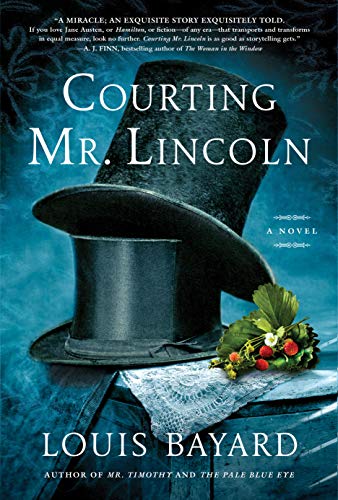Courting Mr. Lincoln: A Novel
Two visitors arrive in Springfield, Illinois, in 1839: an aristocratic Kentucky belle with politics in her lineage, and a backwoods lawyer, Kentuckian by birth, with politics forever on his mind. Mary Todd’s first impression of Abraham Lincoln reminds her of a spindly pine tree, with appropriately rustic manners. But we know what results. Bayard recounts their unlikely romance with the wit and keen observation of a latter-day Austen, and the pain and poignancy of tragedy waiting in the wings.
The two point-of-view characters are Mary and Joshua Speed, the dry-goods merchant who becomes Lincoln’s closest friend and social mentor, and with whom he shares the loft above his store. Speed provides lessons in everything from proper etiquette, sartorial necessities, and, most hilariously, the waltz. But he has mixed feelings about his charge’s social success, because he cherishes their common bachelorhood, while, conversely, supposing he might have wanted Miss Todd for himself. Using his ambivalence, the narrative delves into the nature of friendship (easy to test) versus marriage (a more speculative option).
Since the only perspectives belong to Mary and Joshua, the reader understands implicitly how helpless they feel at Lincoln’s dark, distant moods, and how frustrated at his emotional elusiveness. Courting Mr. Lincoln offers a penetrating view of what the great man must have been like to live with and resuscitates Mary’s reputation as a woman of charm, wit, and political acumen, rather than the neurotic millstone that so many writers portray. Both characters bear deep psychological wounds, which is why the course of their true love never does run smooth.
And as a chronicle of that love, this is a terrific novel, vivid in detail to satisfy lovers of historical fiction, and offering a taste of heaven to the literary.










